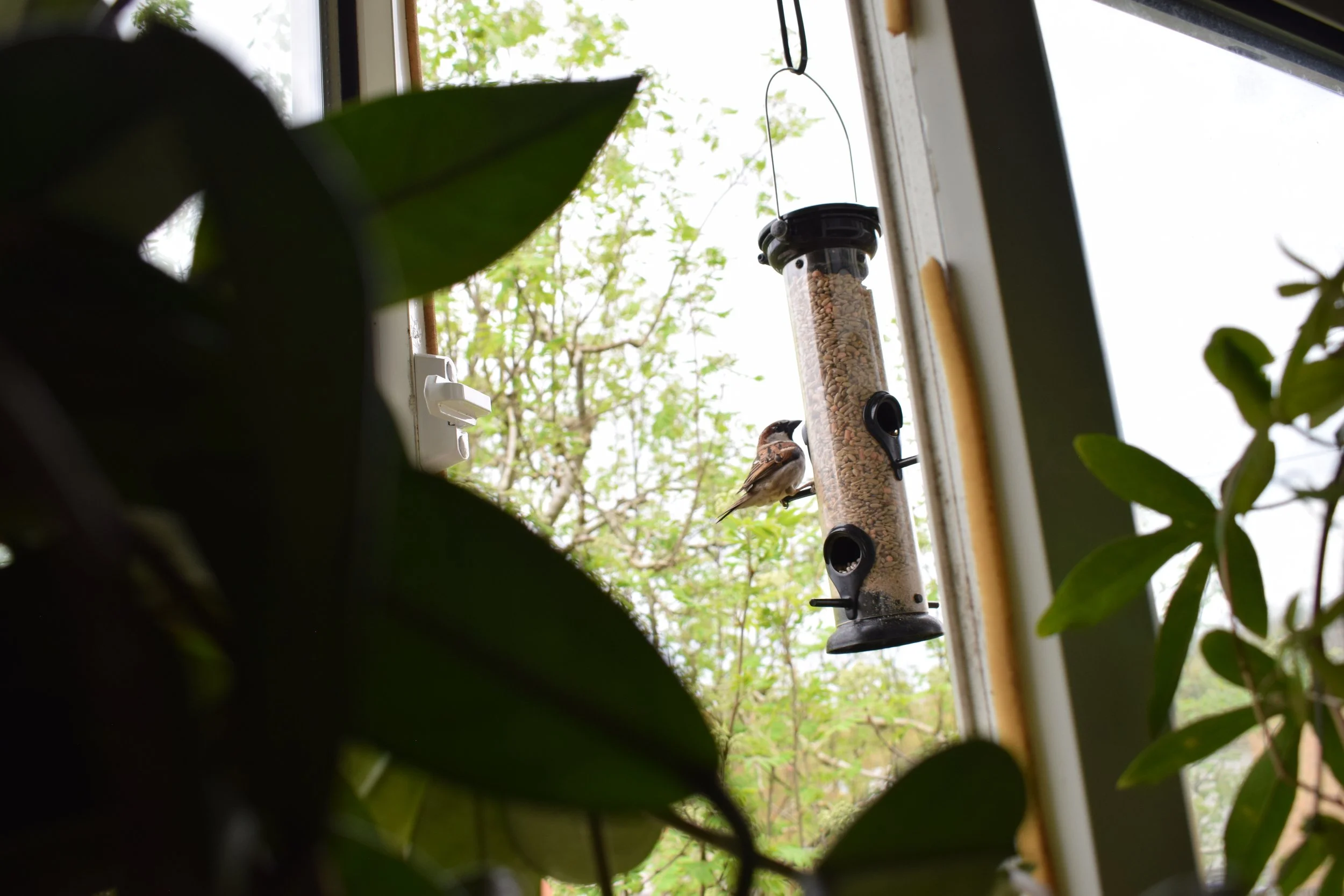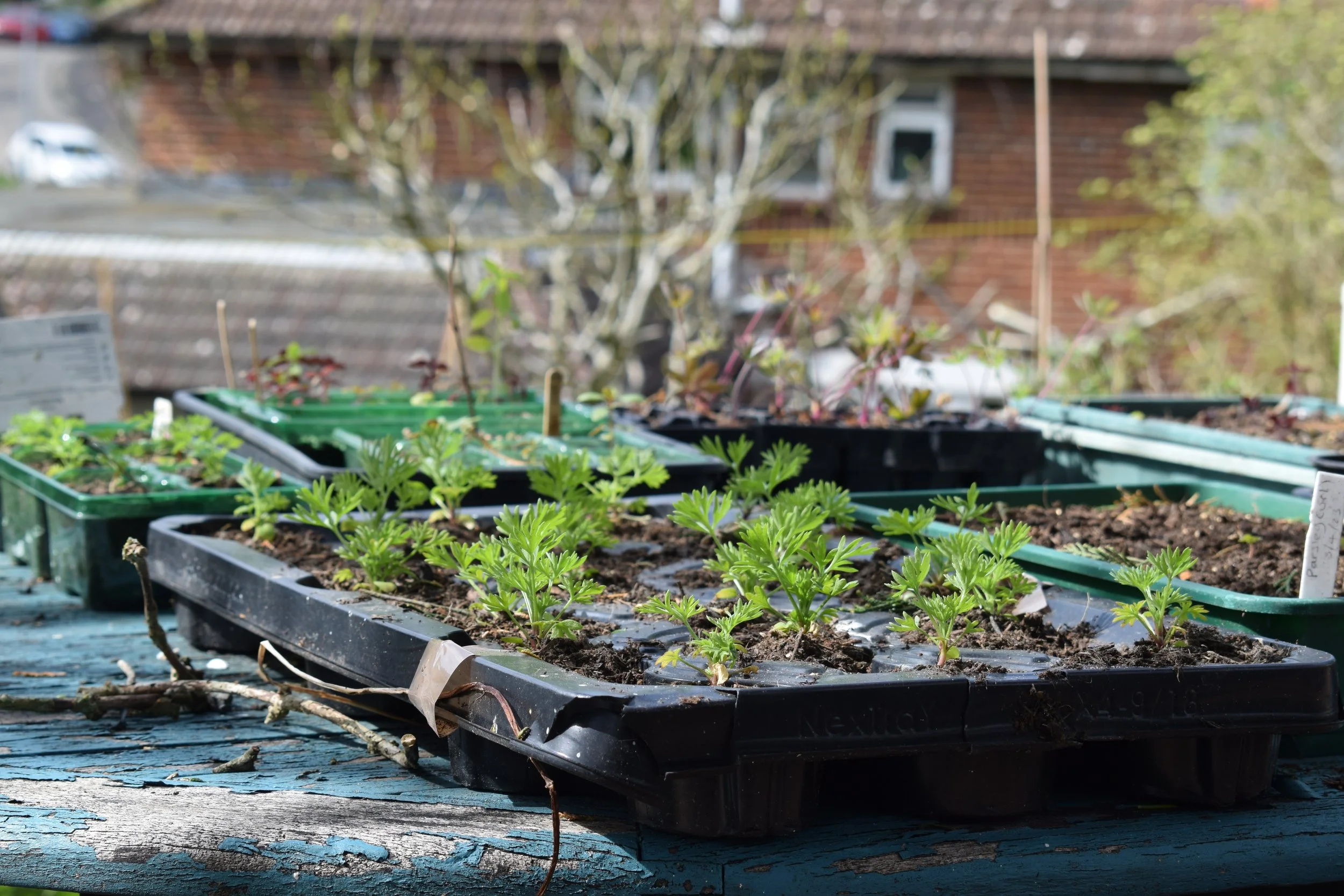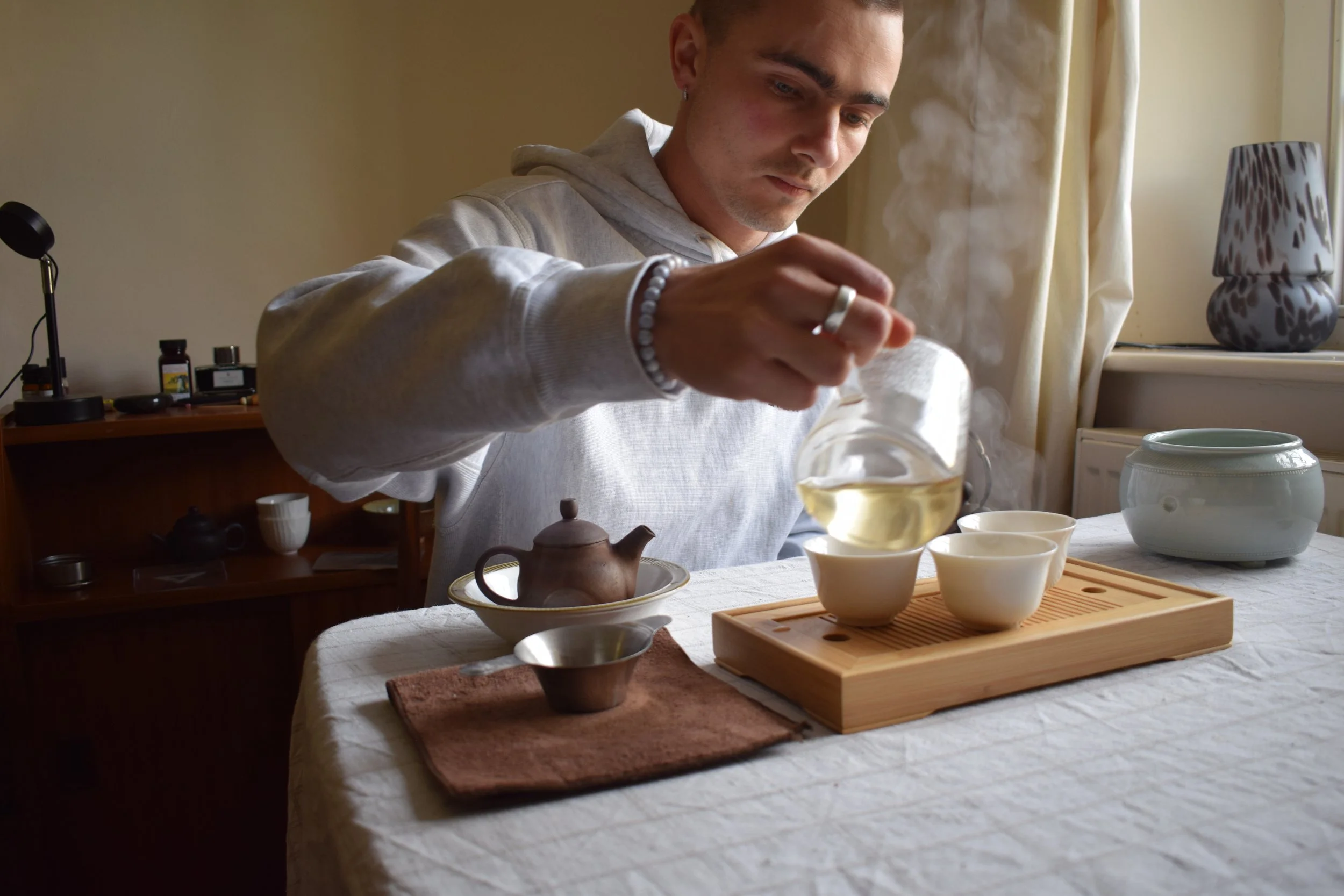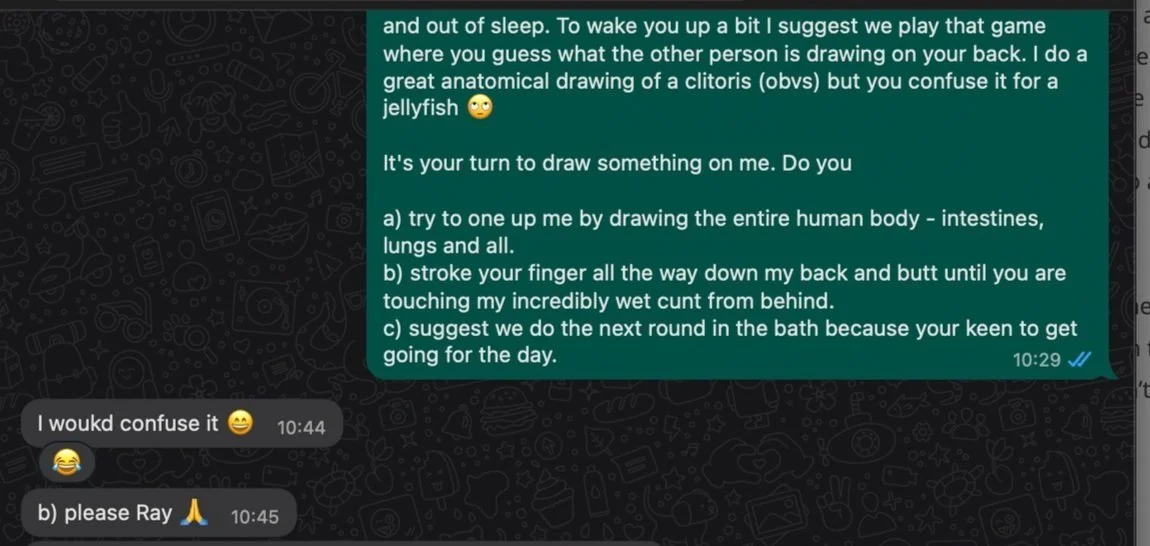Back in December I facilitated a conversation with a bunch of small businesses and freelancers from the Agencies for Good network to talk about the tension we experience making money while working on social justice issues. I’ve written before about why people should pay DEI practitioners, but with a few more years under my belt as a freelancer working to address social justice issues, power dynamics and extractive economic systems, I thought I’d share something about how I think about pay within my work.
To be fully transparent and up front, my standard day rate is £650. In my experience, with the amount of business admin and relationship-building required that isn't chargeable to anyone in particular, a typical full-time freelance facilitator could manage about 3 days of chargeable time a week if they had a constant stream of work (which is almost impossible for any freelancer that isn’t a fixed-term contractor, and even then contractors have big periods of time where they’ve not got their next gig). In my context where I’m doing at least 1 day of work a week on our housing co-op, regular work at the community farm and on other community organising, and picking up kids from school at 3pm most days I end up with only 1-2 days of chargeable time per week even if I work in the evenings and weekends to make up for it (again assuming that I have a steady flow of clients which most freelancers do not). On average on this day rate after all my business costs, I end up paying myself around £2,500 a month before income tax (equivalent to a £30,000 salary).
Some people (likely those that have never freelanced) will see this salary and be surprised it’s so much lower than expected when they consider £650 to be a high day rate. Some people (likely those who know how hard it is to sustain self-employment) will look at this and wonder how I manage to have such a high income. I only started feeling confident to charge this amount when I started working with my partner who was on this rate, I was scraping by on much less before he encouraged me to value myself.
So below are just some of the reflections on how I got to this place and what makes earning this level of income feel okay for me - both in practical and moral sense.
What are my needs?
A basic need that I used to ignore previously was the fact I can get sick and be entirely unable to work. I am also autistic and am frequently disabled by meltdowns. If I was employed I’d have access to paid sick leave and holiday leave, as a self-employed person I have to earn enough to cover those myself.
My salary also has to support raising 2 kids full-time. Plus it subsidises the time I make to care for my wider community - whether that’s supporting the people I live with emotionally or physically, cooking regular dinners for the local lgbt+ group, supporting our co-op and other housing co-ops with DIY, finances, legal issues or emotional work, hosting gatherings in our community space for refugees and asylum seekers - the list is endless.
I believe in creating a world where all forms of labour are valued, and therefore I try my best to account for that in how I think about my own income, even if clients are more reductive about it. However this unpaid labour is not just something that has to be subsidised by my paid work, it is intrinsically linked to the value I deliver as a freelancer but we will come back to that later.
I live comfortably on this salary because I have been able to divest from the status quo. I pay £660 towards rent and bills for me and my kids at our housing co-op. We collectivise food purchasing as much as possible but this forms another substantial monthly cost, as does the running of a car which is required for living rurally.
What I consider ‘chargeable’?
When I first started out as a freelance facilitator I only had my designer friends’ contracting rates to go by. My first paid client was the British Medical Journal and I only charged them £300 for a full day workshop with 40+ people!! At the time I thought £200 was a decent day rate and thought a day and half was enough to cover my time. Past me would never have dreamt of one day charging 6 times that amount for the same thing.
These days I try to ensure I include plenty of prep time and travel time in the cost for an in person workshops, and for some clients I consider the ongoing emotional toll of the work, although 9 times out of 10 working in the social justice space means I go far beyond my contracted hours because very few people value the depth of thinking and relating that is truly required to create meaningful change.
In addition many individuals I work with want to keep ongoing relationships with me long after any paid engagements, which I absolutely love in a lot of ways, but as someone that already has a large extended community and chosen family it’s incredibly hard to juggle the multiple voice notes and emails I receive from past and potential clients and workshop participants each week. For me I actually struggle with the concept of day rates for most of the work I do because you can never predict what transformations might occur and what cans of worms might be opened, and even when most clients don’t have endless budget to keep resourcing that I still feel a deep responsibility to show up in some capacity for people who are ready to create real shifts in practice and power.
One thing that people don't fully grasp is that the value I bring to my paid work is often substantially higher as a result of what I embody in the rest of my life. As a community organiser for instance I am deeply connected to a lot of people with different life experiences, which makes it easier for me to design inclusive spaces in different contexts and to draw upon my networks for useful insight. As someone doing collectivised budgeting in more intimate settings, holding space for funders to do that with beneficiaries doesn't feel as daunting as it might if I wasn’t constantly practicing this in my own life. When my brain processes and composts alongside my fellow volunteers at the community farm, I am also learning new modes for reflecting on myself and the system that I can share with my clients.
When do I charge less?
Many people choose to do a charity or not-for-profit discount on their rate but having been employed at a questionable charity in the past that logic has never made sense to me. There are a lot of not-for-profit organisations where CEOs are still paying themselves 6-figure salaries. There are charities that perpetuate the exact thing they are supposedly trying to dismantle. There are dysfunctional non-profits where the emotional labour of the work I’m doing is going to be higher than in a corporate setting. But there are many scenarios where I offer my time for much less than my standard day rate including:
Lower rates for individuals that want to access my work but can’t either due to a lack of disposable income or due to the constraints or barriers they face in their organisation. For instance on my holding space series it’s a ‘pay-what-you-can’ offer, and about 50% of each cohort join for free as a result.
Lower rates or pro-bono time for individuals facing real challenges in doing social change work within a toxic environment, for instance through transformational relationships coaching . I believe in those individuals' capacity to create change with the right support and I don’t want them to give up simply due to a lack of internal buy-in.
On longer-term projects that really matters to me, and where the group or organisation have really clear standards around pay. For example I was recently invited to work with a prison abolition group with really consistent pay principles. I both want to further my facilitation work within restorative and transformative justice, and I can see that they have clear commitments to one another when it comes to what they spend so I’ve offered to reduce my day rate to the same as theirs which is about £200.
When do I struggle?
After 7 years of being self-employed this is the first year I’ve paid myself the same every month and not burnt myself out with the anxiety of where the next gig is coming from. But I’ve only got to this place due to two things that most other self-employed people don’t have access to: 1. I’ve worked with one of my partners for the last few years and we’ve shared income equally even if one of us is delivering or winning more work 2. I received an unrestricted grant from Thirty Percy as part of their changemaker programme.
Both of these things have made it possible for me to steady out the ebbs and flows that are usually present in freelancing, and in turn this enabled me to make more thoughtful decisions about where I invest my time and energy, rather than jumping at opportunities simply because they can afford to pay me now. It has also made me more open to non-chargeable relationship building - which previously used to fill me with resentment towards those who didn’t seem to value me, or on the flip side made me feel a bit gross in the relationships where I really did care about the people and their work and wanted those relationships to be mutual rather than transactional.
It’s helped me to really lean into deep and never-ending work of building community and organising people towards change. So much of this is often unseen and undervalued and now I can throw myself wholeheartedly into creating the glue that holds everything together, rather than cutting corners because I don’t know if I’ll be able to afford to pay my bills next month.
Another thing that’s been hard to navigate as a freelancer is consistently finding the funds to pay other people and investing in our own development. I have strong principles around what I deserve to earn and I want to ensure that I’m valuing everyone else with the same mindset. But for most of us investing in other people requires us to take that out of our earning capacity. The grant I received has enabled me to more easily pay co-facilitators, get design support, and access training opportunities that I otherwise wouldn’t have been able to afford. In addition I’ve been able to invest in starting up a Queer Care Collective which has paid multiple facilitators, a photographer, a printing co-op and provided the queer community with a £500 co-budgeting pot for shared resources.
I’ve been able to share resources in a way that aligns with my values partly because of this funding, but it was also present in the way I approached this work even before I had any disposable income. Collaborative Future for example was founded on the belief that moving resources rapidly into the hands of undervalued individuals could be transformational and we operated on the principle that no-one should be doing unpaid labour. Even as someone with no savings and no access to family wealth, I was still able to use my privilege to take out a £20k personal loan to fund this work (I wrote this before about the barriers this created for us to then access grant funding). For me taking financial risks in order to create meaningful and urgent change is worth it. When I commit to mobilising the relatively small amount of resource I have - whether that’s money, housing, energy or connections - I am reminded that we all have the power to change things even if we are reliant on the capitalist systems we are trying to dismantle.
















